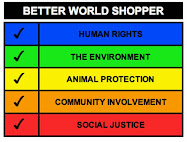By Teo Kermeliotis, for CNN
STORY HIGHLIGHTS
- More than 40 million people in 32 countries have been traced and given birth certificates
- Millions of children now have access to health services after Plan's registration campaign
- Registration is fundamental in protecting children from exploitation and abuse
- Each year, 51 million children are not registered at birth, directly affecting their rights to health
Ten-year-old A-Lea is one of the generation of "invisible children." When he got ill, he was unable to visit the doctor. Instead he suffered at home in the remote mountainous district of Chiang Rai, northern Thailand.
As his condition deteriorated, he and his sister Orowan, 18, were forced to borrow money from a local loan shark to pay the hospital fees.
Orowan was also the victim of teasing and bullying at school. "One day, a teacher said to me in front of the whole class that I was not a Thai citizen and there's no point me continuing to study. I felt really embarrassed and hurt," she told Plan. "I had to walk out of the classroom and go home immediately. I haven't been back to that school since."
In 2007, Plan came to the area to help stateless children as part of its Universal Birth Registration campaign. Soon after, both A-Lea and Orowan were able to obtain citizenship and can now exercise their full rights as citizens.
They are among more than 40 million people, mostly children, in 32 countries who can now access a number of vital benefits, including life-saving medicines and immunization programs, following Plan's five-year campaign, the organization said in a report released Monday.
"A birth certificate gives you legal identity as a child or as an adult. It gives you a nationality and a sense of belonging. From our program work, we've come across cases where the certificate that proves who you are becomes a lifesaver," Plan's head of global advocacy Nadya Kassam told CNN.
An official record of birth could mean proof, not only of identity, but of existence, Plan's "Count Every Child" report says.
In many countries, those without a birth certificate may not have the right to marry, vote, be employed, inherit property, open a bank account, acquire a passport to travel outside their country of birth, or even to register their own children's births.
The report recounts the story of Marcelino, 28, and Juana, 22, from Cusco, Peru. Their 8-month-old baby, Isabel, had been refused specialized medical attention because neither parent had an identity document.
Worse, the child had no birth certificate. Marcelino had not obtained a legal identity because his work as a stonecutter had erased his fingerprints, he told Plan's researchers.
However, following a medical emergency affecting his child, he recognized the importance of having a document to verify his identity. Soon after, he registered Isabel.
The report says registration is also fundamental in protecting children from exploitation and abuse such as human trafficking, prostitution and from being treated as adults by the criminal justice system.
It helps in reuniting children with families after natural disasters and armed conflict. It also protects them from child marriage and early recruitment into the armed forces.
"The times we live in are making birth registration more important than ever. The global recession is pushing more children into trafficking, the sex industry and into illegal and hazardous child labor.
"Economic migration means children can be more easily made stateless and no one takes responsibility for their welfare and development," Plan International CEO Nigel Chapman told CNN.
Archbishop Emeritus Desmond Tutu, who helped launch Plan's campaign in 2005 said, "Universal birth registration is impossible to ignore and entirely possible to achieve, if countries have the political will to make it happen."
Embracing innovative techniques such as the use of text messaging, media campaigning and celebrity ambassadors, Plan has managed to raise awareness on the issue.
In just 10 months, around 7 million people in Cambodia -- more than half the population -- received birth certificates. Sikka district in Indonesia saw birth registrations surge from just 3 percent in 2004 to 72 percent in 2006.
However, the goal of achieving 100 percent universal birth registration is still far from being accomplished.
Around 51 million children born in 2007 were unregistered and nearly half of them live in South Asia, according to UNICEF's latest official figures.
Susan Bissell, head of child protection for UNICEF, praised Plan for its efforts and urged governments and agencies to put more emphasis on the issue. "There's more that needs to be done.
"A quarter of developing countries with birth registration data have a birth registration rate of less than 50 percent. We must think outside the traditional boxes and really see what birth registration means for a child throughout their whole life," she told CNN.
As for A-Lea and Orowan, their future looks bright: "Since 2008 my name has been added to the house registration document, and when I turn 15 I can go to the district office and get a Thai ID card. This makes me very, very happy," A-Lea said.
| Find this article at: http://www.cnn.com/2009/HEALTH/11/16/birth.registration.plan/index.html |






No comments:
Post a Comment